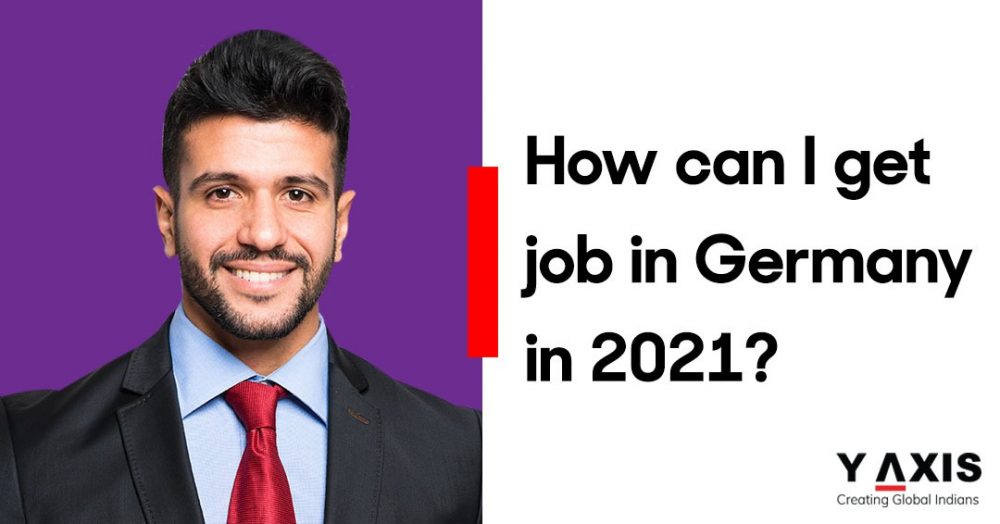
Germany is one of the best places to be if you are a skilled foreign worker. With the Skilled Workers Immigration Act that came into force on March 2020, it will be easier for skilled workers from non-EU countries to come to the country.
According to the future projections by the Institut für Arbeits- und Berufsforschung (IAB), by 2030, Germany will require about 3.6 million workers for its potential labor force. The annual net migration of 200,000 can be assumed as a way of fixing this gap in the German labor force.
With the Skilled Workers Immigration Act coming into force entry of foreign-born non-EU skilled workers can be expected to be further relaxed and more streamlined.
Under the new law, employers seeking to hire skilled workers will no longer need to do a priority check which the government had insisted upon earlier to ensure that the job vacancies cannot be filled with German or EEA citizens.
The priority check will not be required if the foreign workers will be employed under the same working conditions as German citizens. The act has also made amendments to the Residence Act which will now consider those with a vocational degree on par with those who hold an academic degree. From now on foreign workers will be considered as skilled workers within the scope of the Residence Act. The law provides direct permanent residency to these foreign workers within four years.
With the introduction of the Skilled Migration Act, the government hopes to simplify the immigration process for qualified workers from outside the country and for German employers. The new law has provisions to accelerate the application process and provide German businesses with the skilled talent that they need.
Advantage for overseas job applicants
With the passage of the act, qualified professionals who have vocational, non-academic training and are from non-EU countries can move to Germany to search for work.
The law has modified the classification of a qualified professional. It will now include individual with a tertiary education degree or vocational training after a training course of two years. Such professionals must have their qualifications recognized by German authorities before they begin to work in the country.
——————————————————————————————————————
Check your eligibility from our Germany Skilled Immigration Points Calculator.
—————————————————————————————————————–
Top 3 ways for getting a job in Germany in 2020:
If you are looking for a job in Germany in 2020, there are many ways to go about it. The recommended course of action would be to proceed through any of the following routes –
Jobbörse:
With a literal meaning of a “job fair” or “job market”, Jobbörse is the official job portal of the Bundesagentur für Arbeit (Federal Employment Agency).
The portal lets you conduct targeted searches based on the vacancies. You can also post your profile in a closed area so that the Germany-based employers can find your profile and contact you, if found suitable.
Jobbörse is also available as an app.
However, do keep in mind that while the job offers are updated on a daily basis, most of the job postings are in the German language.
Make it in Germany:
Make it in Germany is a portal by the German government specifically for qualified professionals from all across the world.
The portal provides detailed information about finding jobs, visa processing, and life in Germany. Researchers and entrepreneurs can also look up information on their career prospects in Germany. Additionally, information is also given on higher education and vocational training.
For more information on job openings in Germany, you can look at classified sections of local German newspapers. Company websites also post job openings available with them. Apart from this, you can take the help of recruitment agencies in Germany to help you in your job search.
Alternatively, you can get in touch with us if you want expert guidance on how to find the most suitable high-paying job for you in Germany.
We can also help you with Resume Writing as well as Resume Marketing services.
Providing a trusted platform to facilitate international recruitment, Y-Jobs brings together jobseekers and overseas employers.
Our team of 600+ experts can help you with Job Search Services.
Do I have to know German for getting a job in Germany?
Both the post that you will be employed on as well as the employer that you will be working for in Germany will be the determining factors for whether or not you will have to learn German.
Nevertheless, some basic knowledge of the German language can be of great help in everyday life situations while in Germany.
If you find the requirement, Y-Axis can also help you with your German language learning.
What are the jobs in demand in Germany?
Hiring prospects are expected to be bright in the healthcare, engineering construction, finance and business service and other service sectors.
Germany is a good place to live and work for a foreign worker. If you are thinking of working overseas, why not Germany?
If you would rather assess the ground reality before committing to a full-time job in Germany, you can always head to the country for 6 months via the German job seeker visa.
For more details and expert guidance, get in touch with us today!
Live your dream of working in Germany in 2020. Viel Glück!
If you are looking to Study, Work, Visit, Invest or Migrate Overseas, talk to Y-Axis, the World’s No. 1 Immigration & Visa Company.
If you found this blog engaging, you may also like…
Employees welcome benefit of international experience in their careers.



How can I get job in Germany in 2021?
Posted on December 15, 2020